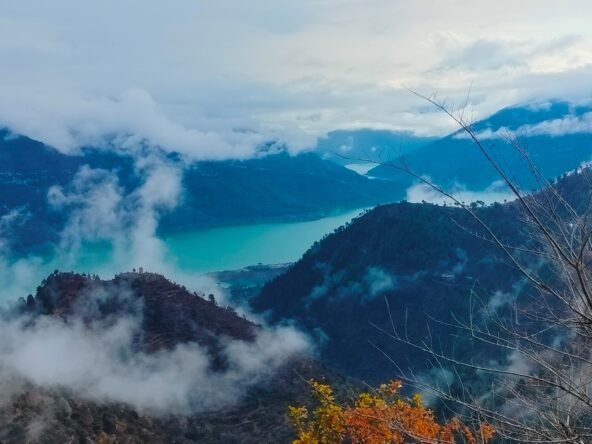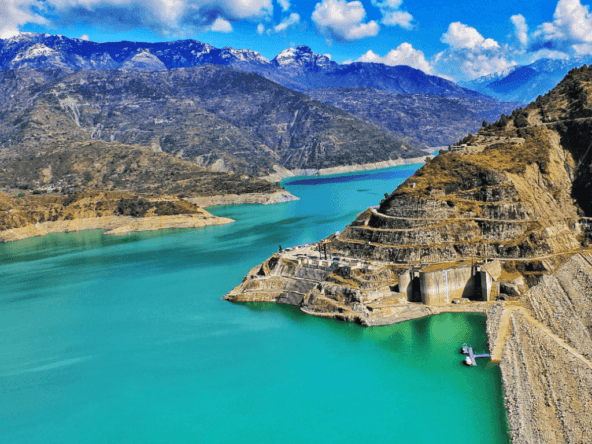Uttarakhand, often referred to as the “Land of the Gods,” is renowned for its stunning landscapes, serene environment, and rich cultural heritage. In recent years, eco-tourism has emerged as a significant trend in the state, attracting travelers seeking sustainable and nature-friendly experiences. This shift towards eco-tourism is not only benefiting the local economy but also having a profound impact on the real estate market in Uttarakhand.
What is Eco-Tourism?
Eco-tourism focuses on responsible travel to natural areas, conserving the environment, and improving the well-being of local people. It emphasizes minimal environmental impact, sustainability, and education, allowing tourists to appreciate and protect the natural beauty and cultural heritage of the places they visit.
Factors Driving the Rise of Eco-Tourism in Uttarakhand
- Natural Beauty and Biodiversity
- Uttarakhand boasts a diverse range of ecosystems, from snow-capped mountains and lush forests to pristine rivers and lakes. This natural beauty is a major draw for eco-tourists who wish to experience the wilderness and tranquility of the region.
- Adventure and Recreational Activities
- The state offers numerous adventure activities such as trekking, river rafting, camping, and wildlife safaris. Eco-tourism packages often include these activities, attracting adventure enthusiasts and nature lovers.
- Cultural Heritage and Spiritual Sites
- Uttarakhand is home to several ancient temples, ashrams, and pilgrimage sites, making it a spiritual hub. Eco-tourism blends cultural exploration with environmental consciousness, offering a holistic travel experience.
- Government Initiatives and Support
- The Uttarakhand government has been actively promoting eco-tourism through various policies and initiatives. These include the development of eco-friendly infrastructure, conservation projects, and community-based tourism programs.
- Growing Awareness and Demand
- Increasing awareness about environmental conservation and sustainable living has led more travelers to seek eco-friendly destinations. This trend is supported by a growing global movement towards sustainable tourism.
Impact of Eco-Tourism on Real Estate in Uttarakhand
- Increased Demand for Eco-Friendly Properties
- As eco-tourism gains popularity, there is a rising demand for eco-friendly properties, including resorts, homestays, and campsites. Investors and developers are keen to cater to this market by building sustainable accommodations that blend seamlessly with the natural environment.
- Rise in Property Values
- The influx of eco-tourists and the development of eco-friendly infrastructure have led to an appreciation in property values. Areas known for their natural beauty and eco-tourism potential, such as Tehri, Nainital, and Rishikesh, have seen significant growth in real estate prices.
- Opportunities for Local Communities
- Eco-tourism promotes community-based tourism, where local residents play a crucial role in hosting and guiding tourists. This has opened up new avenues for locals to engage in the real estate market, either by renting out their properties or by setting up small eco-friendly accommodations.
- Sustainable Development Practices
- The emphasis on sustainability has encouraged the adoption of green building practices in the real estate sector. Developers are increasingly incorporating renewable energy sources, waste management systems, and eco-friendly materials in their projects to appeal to eco-conscious buyers.
- Diversification of Real Estate Investments
- Investors are diversifying their portfolios to include eco-friendly properties. The potential for high returns, coupled with the positive environmental impact, makes eco-tourism properties an attractive investment option.
- Improved Infrastructure and Amenities
- To support eco-tourism, the state government and private sector are investing in improving infrastructure, such as roads, transportation, and basic amenities. This not only benefits tourists but also enhances the overall quality of life for local residents and property owners.
Challenges and Considerations
While the rise of eco-tourism presents numerous opportunities, it also comes with challenges. Sustainable tourism requires careful planning and management to ensure that natural resources are preserved and local communities are not adversely affected. Overdevelopment and unchecked tourism can lead to environmental degradation, which goes against the principles of eco-tourism.
Conclusion
The rise of eco-tourism in Uttarakhand is reshaping the real estate landscape, driving demand for eco-friendly properties and fostering sustainable development. As more travelers seek out responsible and nature-centric experiences, the real estate market in Uttarakhand is poised for growth. By balancing development with conservation, Uttarakhand can continue to thrive as a premier eco-tourism destination, offering a win-win scenario for tourists, local communities, and investors alike.



